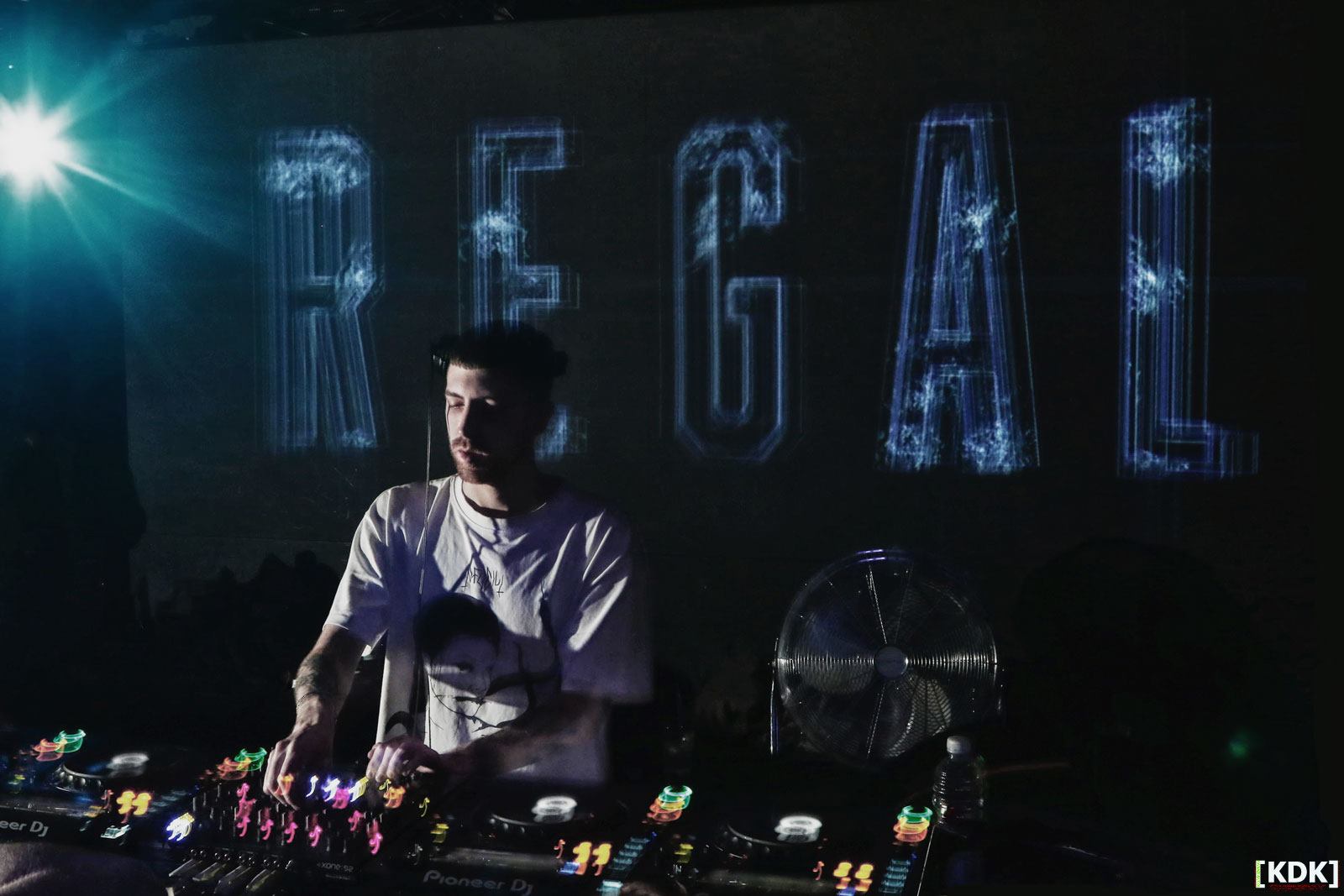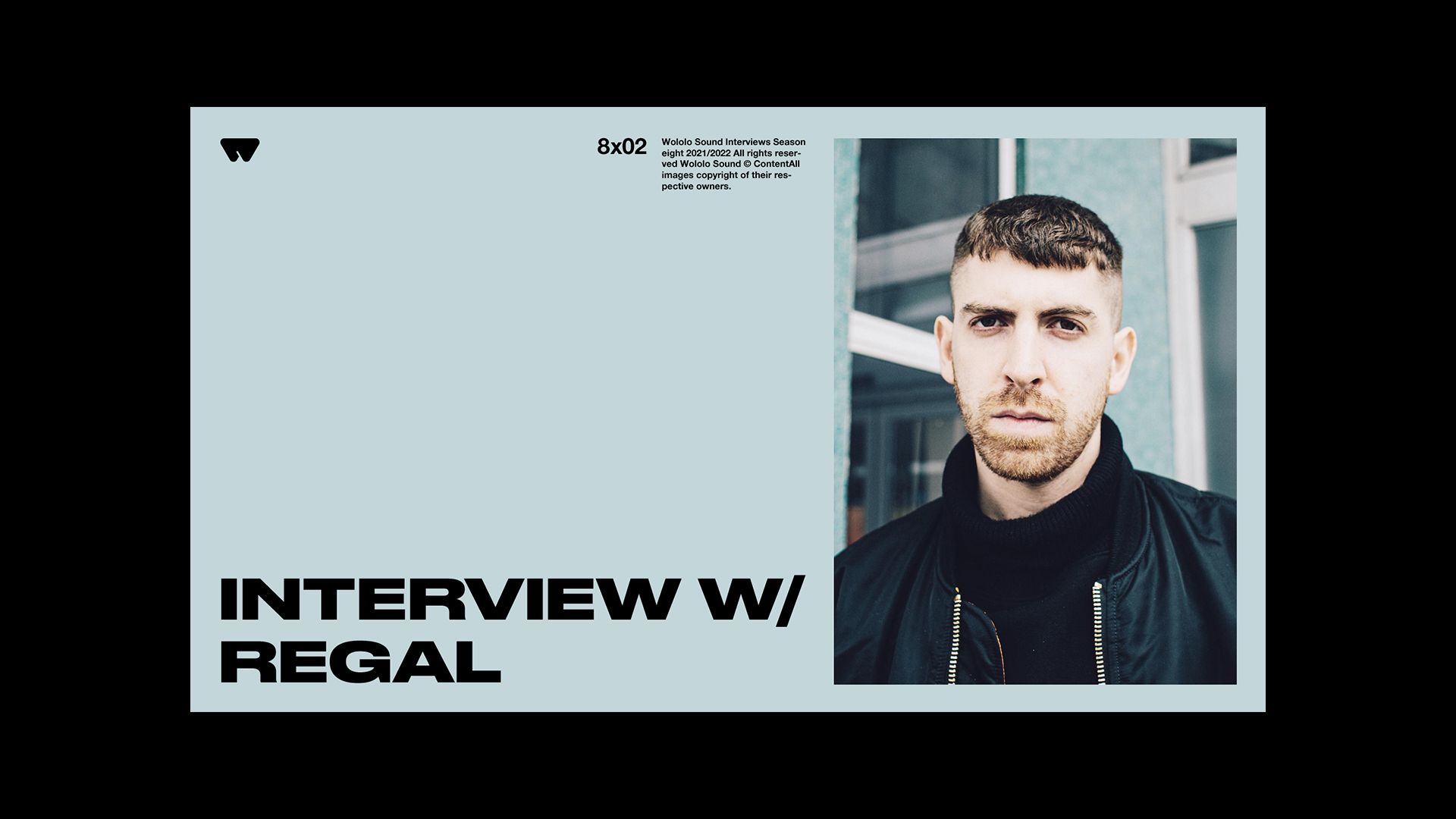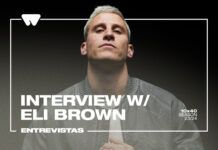En la segunda entrevista de nuestra octava temporada tenemos el placer de charlar con uno de los DJs nacionales con más recorrido internacional. De origen español pero con raíces italianas, Gabriel Cassina más conocido como Regal se ha metido en el bolsillo a la escena techno gracias a su enérgico estilo en el que el acid y el componente melódico están muy presentes. Dueño de Involve Records, uno de los mejores sellos de la escena techno actual, ha estado presente en algunos de los mejores clubes y festivales del mundo, pinchando codo con codo con los artistas más grandes. Hoy lo tenemos aquí.
Wololo Sound: ¡Hola Gabriel! Es un placer tenerte en esta nueva temporada. Empecemos con la entrevista: Estás afincado en Madrid pero tienes raíces italianas; ¿naciste en España? ¿Cómo empezaste a enamorarte de la música electrónica?
Regal: ¡Hola! Sí, nací en Madrid, pero mi padre es italiano y he pasado mucho tiempo allí, aunque he crecido en Madrid. La música electrónica la descubrí en el colegio gracias a un compañero que me enseñó un CD de Bachatta. Ese fue mi primer contacto, pero me atrapó completamente un año más tarde cuando otro compañero me prestó un Cassette de Scorpia. Ese fue el momento clave.
Wololo Sound: Hello Gabriel! It’s an honor to have you in this new season. Let’s begin with the interview: You’re settled in Madrid, but you have Italian roots; Were you born in Spain? How did you begin falling in love with Electronic music?
Regal: Hello! Yes, I was born in Madrid, but my father is Italian and I’ve spent a lot of time there, even though I’ve been raised in Madrid. I discovered Electronic music because a friend showed me a CD from Bachatta. That was my first contact, but I got completely trapped a year after when another colleague lent me a cassette from Scorpia. That was the key moment.
WS: Llevas ya varios años presente en la escena. ¿Cómo fueron tus comienzos? ¿Siempre te llamaste Regal? ¿Por qué elegiste ese alias?
R: Los comienzos fueron un poco como los de todo el mundo imagino. Empecé haciéndome playlists en cassettes, más tarde mezclando temas con el Virtual DJ y grabando mis sesiones en casa. Más adelante me compré mi primer equipo, muy básico, y empecé a pinchar tanto con CDJs como con vinilos del Traktor. Cuando ya era capaz (más o menos) de pinchar empecé a contactar con promotores de Madrid para poder pinchar en garitos y haciendo warm ups en algunos clubs, al principio casi siempre gratis.
En aquella época no me llamaba Regal, tenia otro nombre y producía otra música aunque a la hora de pinchar siempre pinché techno. Llegó un momento que quería dejar atrás todo eso, empezar a producir solo techno y tomármelo todo de forma más profesional y entonces tomé la decisión de adoptar el alias de Regal.
Lo escogí porque me gustaba su significado (en español es “regio”), era corto y fácil de recordar.
WS: You’ve been present in the scene for a few years now. How were your first steps? Have you always gone by the name of Regal? Why did you choose this alias?
R: My beginnings were as everybody’s I guess. I started making playlists in cassettes, later mixing tracks on Virtual DJ and recording my sessions at home. Afterward, I bought my first equipment, very basic, and I began both on CDJs and Traktor’s vinyl. When I was able (more or less) to play I started contacting promoters around Madrid in order to play in places and doing the warm-ups in some clubs, almost every time for free at the beginning.
At that time I wasn’t named Regal, I had another name and used to produce different music even though I always played Techno when it was time to mix. There was a time where I wanted to leave all that behind, produce only techno and take everything more professional, that was the moment I took the decision to go by the name of Regal.
I chose it because I liked its meaning, it was short and easy to remember.
WS: Actualmente eres uno de los DJs nacionales con más recorrido internacional, lo que te ha llevado a estar presente en los mejores clubes y festivales del mundo. ¿Qué ciudad y público te resulta particularmente especial?
R: Madrid es una ciudad y un público muy especial para mi, porque es mi ciudad y mi gente, siempre quiero dar el 100% e intentar que nunca oigan el mismo set y eso me provoca mucha presión. En Berlín y en Tbilisi también siento mucha presión. La primera porque es el epicentro del movimiento y además he vivido ahí y tengo muchos amigos por lo que es una situación similar a la de Madrid. En Tbilisi es por el respeto que le tengo a la ciudad y a su gente y el amor que siempre me han demostrado. Son personas con un espíritu maravilloso y super hospitalarios. Soy residente en Khidi y todas y cada una de las veces que he pinchado ahí ha sido increíble.
WS: Nowadays you’re one of the most international Spanish DJs, which led you to get to the best clubs and festivals around the world. Which city and crowd are particularly special to you?
R: Madrid is a special city with a special crowd to me because it’s my city and my people, I always want to give my 100% and try to never make them listen to the same set, and that’s a lot of pressure. Berlin and Tbilisi also put me under pressure. The first one is because it’s the epicenter of the movement and also because I lived there and have a lot of friends what makes it a similar situation to Madrid’s. Tbilisi it’s for the respect I have for the city and its people and the love they’ve always shown for me. They’re people with an outstanding spirit and are super hospitable. I’m a resident at Khidi and all of the times I’ve played there has been unbelievable.
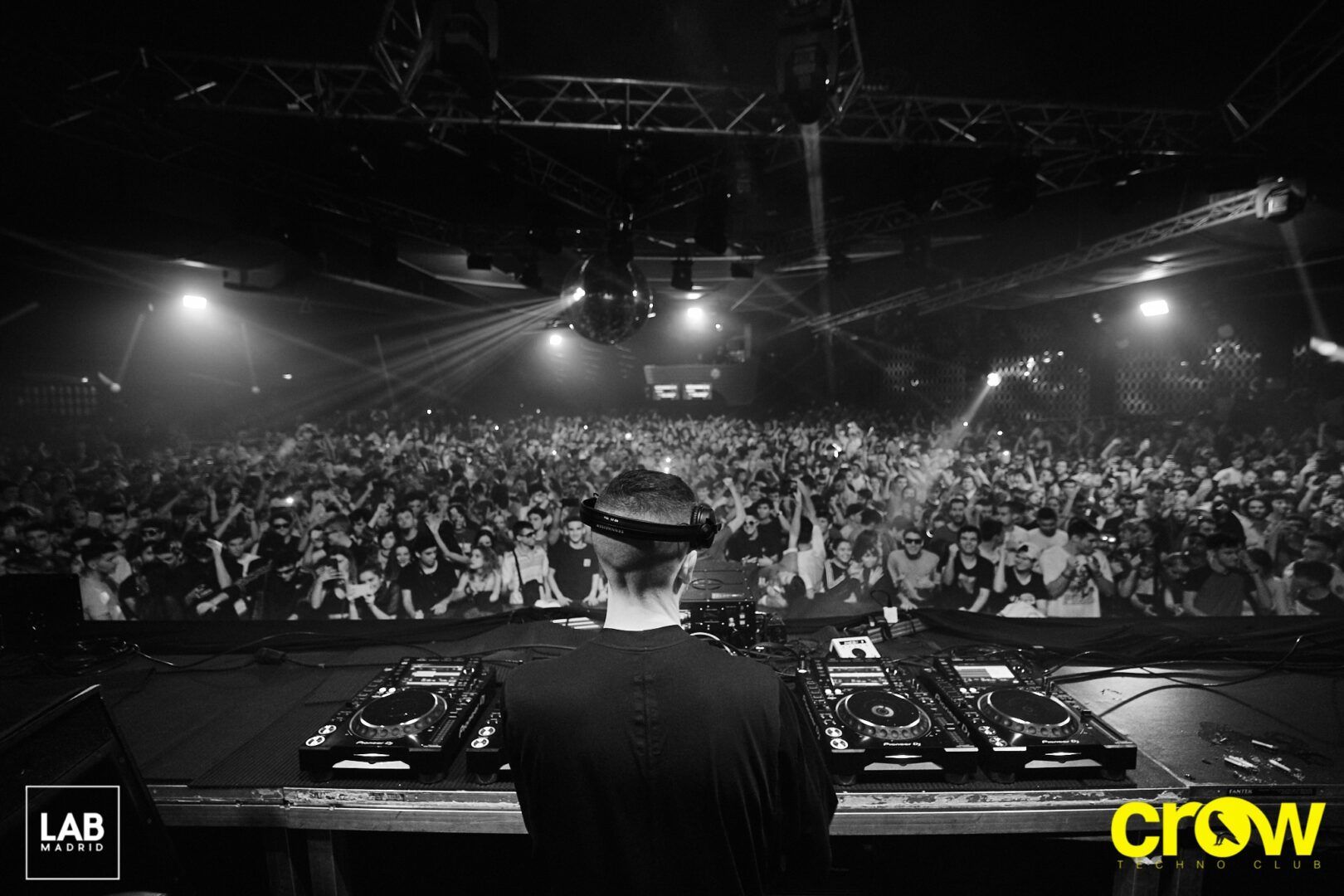
WS: Tu álbum debut se llama ‘Remember Why You Started’, lo cual ya es de por sí es una declaración de intenciones. ¿Cuál es la fuente de inspiración detrás de este álbum?
R: El título responde a un momento crítico que tuve durante la cuarentena en el que perdí la pasión por la música y no entendía quien era, porque hacía lo que hacía ni a donde quería ir. Fueron momentos bastante difíciles mentalmente y de mucha frustración que se sumaron a problemas familiares y personales. Tuve que pasar por muchos pequeños infiernos para poder llegar a ver con claridad y recordar quien era. También por este motivo el álbum está inspirado en la Divina Comedia de Dante, concretamente en el Infierno, dividido por anillos donde cada anillo corresponde un pecado y un castigo. Dante tiene que atravesarlos todos para poder llegar al paraíso, donde se encuentra su musa, Beatrice.
WS: Your debut album is named ‘Remember Why You Started’, which is a statement by itself. What’s the source of inspiration behind the album?
R: The title answers a critical moment I had during quarantine in which I lost passion for music and I didn’t understand who I was, why I was doing what I did, and neither where I wanted to go. Those were very difficult and frustrating moments that got on top of familiar and personal problems. I had to go through little hells to clearly see and remember who was I. Also, that was the reason the album is inspired in Dante’s ‘Divine Comedy’, in its hell to be concrete, divided by rings that represent each of them a sin and a punishment. Dante has to go through them all in order to reach paradise, where he finds his muse, Beatrice.
WS: En el álbum hay un gran trasfondo detrás sobre los caminos por los que has pasado siendo DJ. ¿Qué momento de tu carrera nunca olvidarás?
R: Realmente como decía antes, el trasfondo del álbum no responde tanto a mi carrera profesional, sino a mis luchas personales e internas, que tuvieron su auge en el momento de la cuarentena. Aun así, seria muy difícil quedarme solo con un momento de mi carrera, tanto bueno como malo. Remarcaría las actuaciones en Tresor, Berghain o Mondo Disko, ya que eran metas que me había puesto y cumplirlas fue algo muy bonito y satisfactorio.
WS: In the album, there’s a big background about the roads you’ve been through as a DJ. What’s a moment from your career that you’ll never forget?
R: Actually as I said before, the background of the album is not that much about my professional career but about my personal and inner battles, that were at their peak during quarantine. Despite that, it would be very difficult to just keep one moment from my career, both good and bad. I would highlight my performances at Tresor, Berghain or Mondo Disko, since those were goals that I set and to accomplish them was something very beautiful and comforting.
WS: Te hemos visto apostar por diferentes estructuras, sonidos, ritmos. ¿Se podría decir que en el proceso creativo te has salido de tu zona de confort? ¿Cómo te influyó la pandemia?
R: Siempre trato de salirme un poco de mi zona de confort, de lo contrario llevaría años haciendo lo mismo y me aburriría. Sin embargo el álbum ha sido donde más libre me he sentido, por supuesto que hay temas pisteros como los que podría sacar en un EP pero creo que hay muchos tracks por los que no habría apostado si no se tratase de un LP. La pandemia con su correspondiente cuarentena lo que me ofreció fue disponibilidad a tiempo completo para probar, experimentar y como digo, sentirme totalmente libre de hacer lo que quisiera y estar 100% enfocado en el álbum.
WS: We’ve seen you go for different structures, sounds, rhythms. Would you say that you’ve stepped out of your comfort zone? How did the pandemic influence you?
R: I always try to step out of my comfort zone, otherwise I would have been doing the same for years and that would get me bored. Despite that the album has been where I’ve felt the freest, obviously, there are club-focused tracks as the ones I could have released as an EP but I feel that there’s a lot of tracks that I wouldn’t have trusted if it wasn’t in an LP. The pandemic with its quarantine offered me full-time availability to experiment and as I said, to feel completely free to do what I wanted and to be 100% focused on the album.
WS: Ahora que ya está fuera, ¿qué tal ha sido la experiencia? ¿Cómo te sientes al dejar ir una pieza tan grande y que lleva tantas horas detrás?
R: Por una parte es un alivio, llevaba varios meses con el álbum terminado y por temas de la pandemia no encontraba la fecha adecuada para lanzarlo. Ahora pienso que quizás lo saqué demasiado pronto pero aun así no creo que hubiese podido aguantar mucho más sin sacarlo jajaja. Por otra parte, como me ocurre con todos mis trabajos, una vez que sale me deja de gustar, y ya estoy planeando el siguiente álbum. Ya tengo el título y algunos temas que creo que podrían encajar.
WS: Now that it’s out, how was the experience? How do you feel about letting go of such a big piece that has so many hours in the making?
R: On the one hand it’s a relief, the album was finished many months ago and for pandemic reasons, I didn’t find the right time to release it. Now I think I may have released it too early, but I feel I couldn’t have kept it for too long without releasing it hahaha. On the other hand, I have the same feeling as the rest of my projects, once they’re out I don’t like them anymore, and I’m now planning the next album. I’ve already got the title and some tracks that I feel could fit.
WS: Además del LP, anunciaste el estreno de una película homónima dirigida por Blas Egea y con apariciones de gente como Jedet, Patrick Criado y Sita Abellan entre otros. Muchos quedamos sorprendidos al ver cómo de serio se puso el tema audiovisual con ‘Remember Why You Started’, pero meses después seguimos sin tener nada más a nuestro alcance que un trailer en las redes. ¿Qué nos puedes contar de esta experiencia cinematográfica? ¿Podremos disfrutar pronto del largometraje?
R: En realidad se trata de un cortometraje y realmente ese ha sido el problema. Teníamos como una hora y pico de grabaciones y había que dejarlo en 20 minutos (que es el máximo permitido para presentarlo a festivales, ya que esa es nuestra intención). El corto sigue en proceso de postproducción, ya que recortar a 20 minutos sin perder la trama narrativa es complicado, pero espero que para noviembre ya esté todo listo y pueda sacarlo junto con los remixes del álbum, que es otra sorpresa que tenía preparada para finales de año.
WS: Apart from the LP, you announced the premiere of the homonymous movie directed by Blas Egea and with appearances by people like Jedet, Patrick Criado, and Sita Abellan among others. A lot of us were surprised about how serious the audiovisual aspect of ‘Remember Why You Started’ was getting, but it’s been months and we still have nothing but a trailer in your socials. What can you tell us about this cinematographic experience? Will we be able to enjoy the movie soon?
R: Actually it’s a short film and that was the problem. We had more than an hour of recordings and we had to let it just up to 20 minutes (the limit time to apply for festivals, which is our intention). The short film is still in the postproduction process, since cutting it up to 20 minutes without losing the storytelling is hard, but I expect that it will be ready in November so I can release it together with the remix album, which is another surprise I had ready for the end of the year.
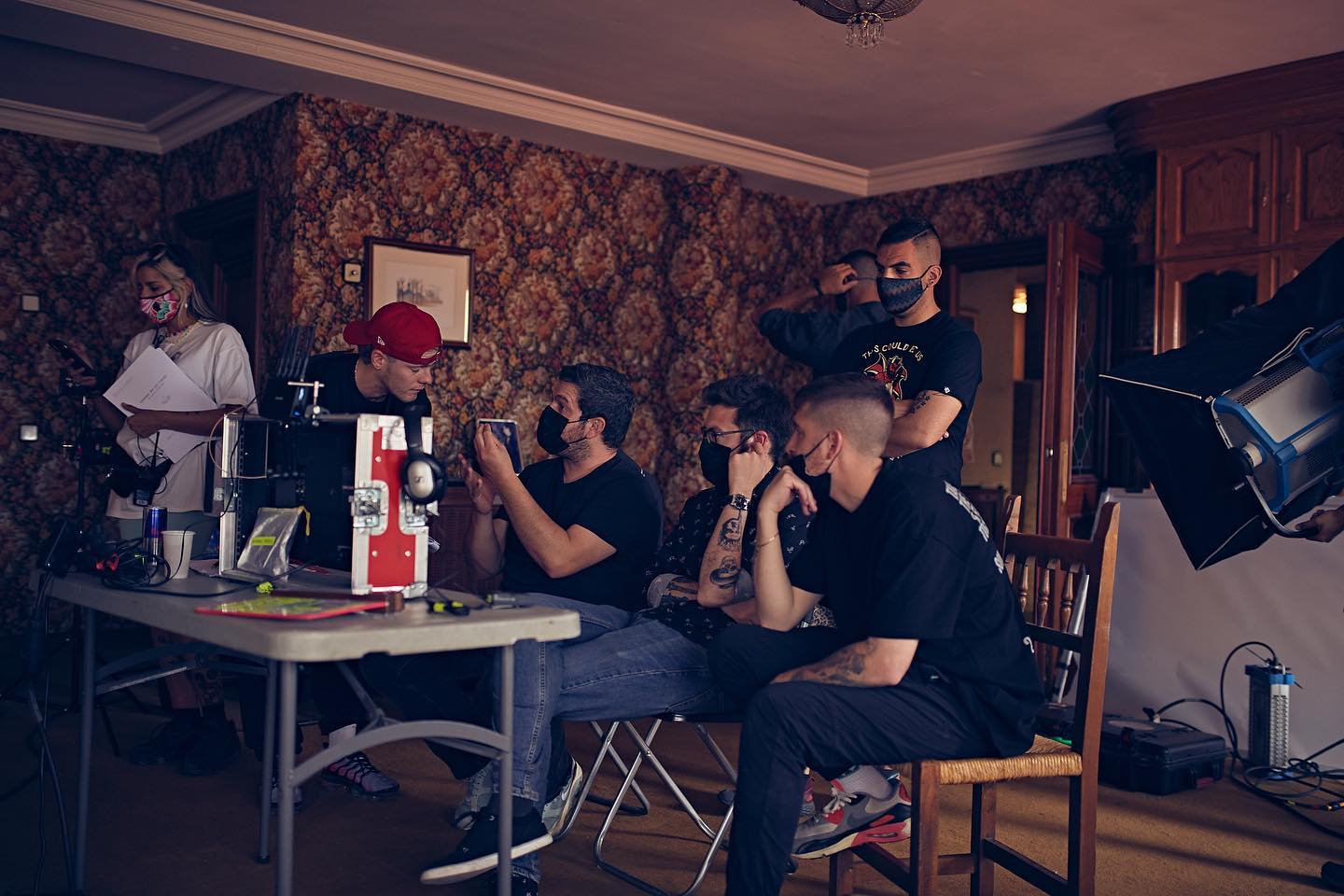
WS: Tu álbum debut vio la luz en Involve Records, sello del cual llevas al mando ya 9 años (se dice pronto). ¿Qué experiencias y conocimientos has ganado al llevar esta plataforma al máximo nivel? ¿Cuántas personas te ayudan a llevar su funcionamiento de forma correcta?
R: Crear mi propio sello discográfico ha sido una experiencia muy bonita porque el día que lo creé no tenía ni idea de nada. He tenido que aprender muchas cosas solo y a marchas forzadas, pero el camino ha sido muy bonito. Me enorgullece haber podido hacer de trampolín para muchos artistas como son Boston 168, Alignment o Trym entre otros.
Actualmente el sello cuenta con un label manager, que es quien gestiona prácticamente todo. Tenemos un acuerdo con una distribuidora que se encarga de producir y distribuir los discos en todos los formatos y en todas las plataformas. Tenemos un diseñador gráfico que se encarga de toda la parte estética. También hay una agente de PR para la promoción y el contacto con los medios de comunicación, y por ultimo mi agente se encarga de las contrataciones de los Involve Showcase.
WS: Your debut album was released on Involve Records, the label that you’ve been running for 9 years (time flies). What experiences and knowledge have you earned from managing this platform to the highest level? How many people help you to manage it?
R: Creating my own label has been a very beautiful experience because the day I created it I had no idea about anything. I’ve had to learn a lot of things by myself and by making mistakes, but the journey has been very beautiful. I’m proud to have been able to push lots of artists like Boston 168, Alignment, or Trym among others.
Right now the label counts on a label manager, who’s in charge of basically everything. We have an agreement with a distributor that produces and distributes the tracks in all formats and platforms. We have a graphic designer who’s in charge of the aesthetics. There’s also a PR agent for promotion and contact with media, and finally, my agent who manages the bookings for the Involve Showcase.
WS: Ya te hemos visto volver al ruedo por Francia, Hungría, Bélgica, Serbia, Alemania, y en nuestro país en Fabrik, Madrid. ¿Qué tal ha sido la vuelta al trabajo? ¿Crees que con la vuelta a la normalidad vamos a vivir un gran movimiento de la escena techno?
R: Volver a pinchar delante de gente ha sido increíble, no soportaba más el rollo de los streamings. Después de tanto tiempo, había muchas ganas y se nota en la energía de la gente. Creo que ha sido un toque de atención fuerte para darnos cuenta y valorar lo que teníamos. También ha sido un momento de renovación, y se ve en la cantidad de fiestas nuevas que están surgiendo por todo el mundo. Creo que la escena techno está a punto de vivir uno de sus mejores momentos.
WS: We’ve already seen you back on track in France, Hungary, Belgium, Serbia, Germany, and in our country in Fabrik, Madrid. How has the comeback to work been? Do you think that with the return to normality we will live a big movement in the Techno scene?
R: Playing in front of people again has been incredible, I couldn’t stand this streaming thing anymore. After a lot of time, there was a lot of hype and you could feel that in people’s energy. I think that this has been a strong wake up call to appreciate what we had. It’s also been a moment for renewal, and you can see that in the amount of new parties that are blooming all around the world. I think that the Techno scene is about to live one of its best moments ever.
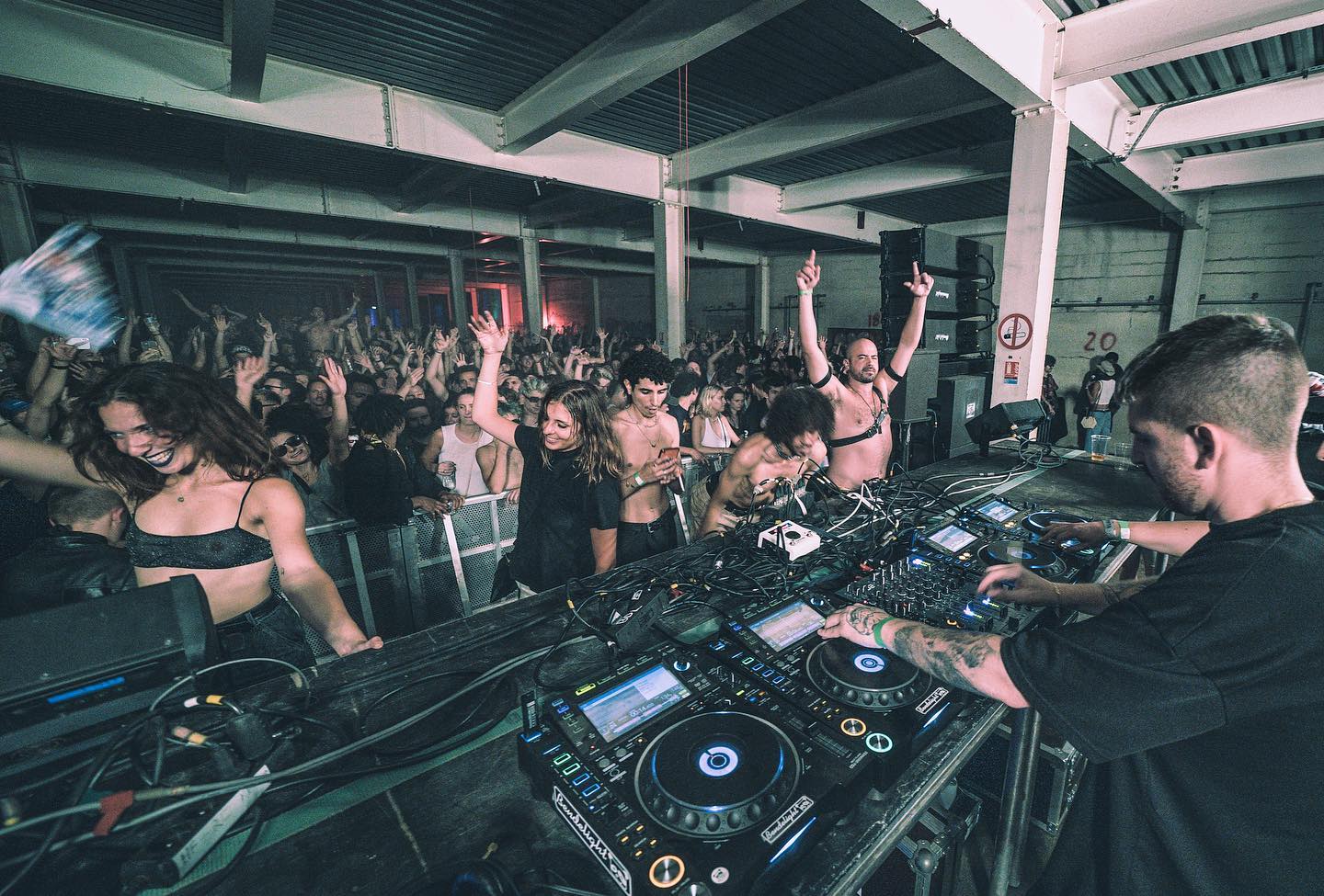
WS: Hablando de ese movimiento techno actual. Muchas personas tachan al género como un género de moda, indicando que su público es similar al del boom del EDM. ¿Consideras que el techno al ser un estilo más accesible hoy en día ha perdido pureza?
R: Como cualquier género que cada vez se expande más, surgen nuevas corrientes, vertientes y opciones. Considerar esto como una perdida de pureza creo que es un error, a pesar de que yo mismo actualmente no me siento muy cómodo con las corrientes que están predominando. El techno en sí no es una moda, algunas de sus corrientes o subgéneros puede que si lo sea pero esto no quiere decir que haya una pérdida de pureza, simplemente la rueda está girando y como todo en la industria, hay cosas que tienen más éxito un tiempo y luego llegan otras.
WS: Talking about the actual Techno movement. A lot of people tag the genre as a trend now, saying that its crowd is similar to the one during EDM’s blow-up. Do you consider that due to the actual accessibility to Techno, it has lost its pureness?
R: Like any other genre that gets expanded, new trends, subgenres, and options are born. I think that it’s a mistake to consider this as a loss of pureness, even though I myself don’t feel that comfortable with the actual trends that are predominating. Techno itself is not a trend, maybe some of its trends or subgenres can be, but that doesn’t mean that there’s been a loss of pureness. It’s simply that the wheel keeps spinning like everything else in the industry, some things are more successful at some point and then others arrive.
WS: Nosotros creemos que es positivo que haya tantas influencias y subgéneros dentro del techno moderno, tales como el trance, hard techno, gabber o hardcore, aunque esto pueda dificultar el categorizar ciertas producciones. ¿Cómo te sientes dentro de esta escena? ¿Crees que es positivo para el género?
R: Como decía antes, con algunas corrientes del techno moderno no me siento muy identificado a pesar de que en ocasiones puntuales si me gustan. Llevo bastante tiempo indagando en música antigua y de hecho gran parte de la música que pincho es anterior al año 2000 o por ahí. En este aspecto, la gran variedad de géneros ha sido positivo para mi porque me lleva a estar buscando cosas nuevas (aunque antiguas) constantemente, de lo contrario probablemente estaría estancado en los mismos temas desde hace mucho tiempo.
WS: We feel that it’s positive that there are so many influences and subgenres inside the modern Techno, such as Trance, Hard Techno, Gabber or Hardcore, even though this may make it harder to classify certain productions. How do you feel inside this scene? Do you feel it’s positive for the genre?
R: As I said before, there are certain trends in Techno that I don’t feel identified with despite there are certain occasions I do like them. I’ve been quite a lot of time digging old music and actually, most of the tracks I play are older than the year 2000 or so. On that aspect, the big variety of genres has been positive to me since it has led me to look for new (old) things constantly, otherwise, probably I would be stuck among the same tunes since many years ago.
WS: Sabemos que llevas años siendo residente en KHIDI, el famoso club de Tbilisi. Es sabido que el techno está acompañando un cambio social en el país y los clubs más underground son lugares donde la tolerancia y la progresividad son intrínsecos al clubbing en Georgia. ¿Cómo has vivido tu este movimiento político y social?
R: Llevo viajando a Georgia bastantes años y pinchando en Khidi prácticamente desde que abrieron sus puertas. He podido ver la evolución (física) del club así como la evolución de la ciudad, Tbilisi. Cada vez se parece más a las ciudades europeas y esto es gracias al auge de turistas, bajo mi punto de vista, apoyado por la escena Techno. Sin embargo el cambio más importante no llega ya que es el más complicado y se trata del cambio político. Los georgianos llevan muchos años luchando por un cambio político donde Georgia sea realmente independiente y no esté bajo el poder y la influencia de Rusia.
WS: We know you’ve been the resident of KHIDI, Tbilisi’s famous club, for years. It is known that Techno is joining a social change in the country and that underground clubs are the places where tolerance and progress are intrinsic to Georgia’s clubbing. How have you lived that political and social movement?
R: I’ve been traveling to Georgia for a few years now and playing in Khidi since almost day one. I’ve been able to see not only the (physical) evolution of the club but also the city’s evolution. Tbilisi resembles more and more to other European cities each time and that’s thanks to the increase of tourists, from my point of view, supporting the Techno scene. Despite that, the most important change still doesn’t arrive since it’s more complicated and it’s the political change. Georgians have been years fighting for a political change where Georgia can really be independent and quit Russia’s power.
WS: Para acabar te dejamos algunas preguntas cortas:
¿Comida favorita?: Pizza
¿Clásico de electrónica favorito? : CJ Bolland – Camargue
¿Un tema no electrónico? Michael Jackson – Beat it
¿Ciudad favorita? Madrid
¿Si no fueras artista como te ganarías la vida?: Buscaría cualquier cosa pero sería infeliz.
WS: Some short questions to end up:
Favorite food?: Pizza
Favorite Electronic classic?: CJ Bolland – Camargue
A non-Electronic track?: Michael Jackson – Beat it
Favorite city?: Madrid
If you weren’t an artist, what would you do for a living?: I would look for anything but I wouldn’t be happy.
